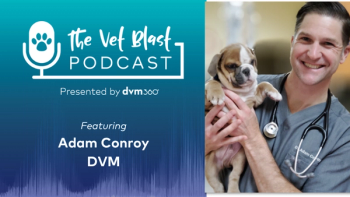
Contain your sharps smartly
Proper disposal is the law-and it's for your own safety.
Every clinic handles sharps—and safe, legal handling is a must. So you need to know how to dispose of these materials properly—and which materials need to be disposed of where.
When the syringe is still attached to the needle, the entire unit is considered a sharp. If the syringe isn't attached to the needle, some states say it's regular trash unless it's contaminated with a pathogen that can affect humans. Other states classify the syringes as medical waste. Needles must always be contained in sharps containers.
While you should check with your state for specific regulations, here's an overview of the safety issues:
- Use puncture-proof containers. Ordinary plastic containers aren't sufficient. The containers made for this specific purpose work best and they're very economical, so there's no excuse for not using them.
- Install sharps containers in convenient locations throughout the hospital.
- Pick the right size container. Sharps containers should be large enough to be practical receptacles, but small enough that they'll be changed regularly to prevent the accumulation of pathogenic organisms. For most practices, a sharps container should last about two weeks to a month in a single location.
- Limit handling. Never collect sharps in one container, dump them into another, and then reuse the first container.
- Dispose of sharps containers properly. Place smaller containers into a larger, secondary medical-waste container—which a waste hauler usually provides—for storage and shipment. In most cases, you can store a sealed sharps container in this larger receptacle for no more than 30 days. Remember, this waste may not be infectious to humans when it's generated, but if it's in storage too long, it becomes a breeding ground for pathogens.
- Dispose of sharps containers properly. Place smaller containers into a larger, secondary medical-waste container—which a waste hauler usually provides—for storage and shipment. In most cases, you can store a sealed sharps container in this larger receptacle for no more than 30 days. Remember, this waste may not be infectious to humans when it's generated, but if it's in storage too long, it becomes a breeding ground for pathogens.
- Dispose of sharps containers properly. Place smaller containers into a larger, secondary medical-waste container—which a waste hauler usually provides—for storage and shipment. In most cases, you can store a sealed sharps container in this larger receptacle for no more than 30 days. Remember, this waste may not be infectious to humans when it's generated, but if it's in storage too long, it becomes a breeding ground for pathogens.
- Dispose of sharps containers properly. Place smaller containers into a larger, secondary medical-waste container—which a waste hauler usually provides—for storage and shipment. In most cases, you can store a sealed sharps container in this larger receptacle for no more than 30 days. Remember, this waste may not be infectious to humans when it's generated, but if it's in storage too long, it becomes a breeding ground for pathogens.
- Dispose of sharps containers properly. Place smaller containers into a larger, secondary medical-waste container—which a waste hauler usually provides—for storage and shipment. In most cases, you can store a sealed sharps container in this larger receptacle for no more than 30 days. Remember, this waste may not be infectious to humans when it's generated, but if it's in storage too long, it becomes a breeding ground for pathogens.
- Dispose of sharps containers properly. Place smaller containers into a larger, secondary medical-waste container—which a waste hauler usually provides—for storage and shipment. In most cases, you can store a sealed sharps container in this larger receptacle for no more than 30 days. Remember, this waste may not be infectious to humans when it's generated, but if it's in storage too long, it becomes a breeding ground for pathogens.
Philip Seibert, CVT, is an author, speaker, and consultant with Veterinary Practice Consultants in Calhoun, Tenn. Send questions or comments to
Philip Seibert
Newsletter
From exam room tips to practice management insights, get trusted veterinary news delivered straight to your inbox—subscribe to dvm360.




